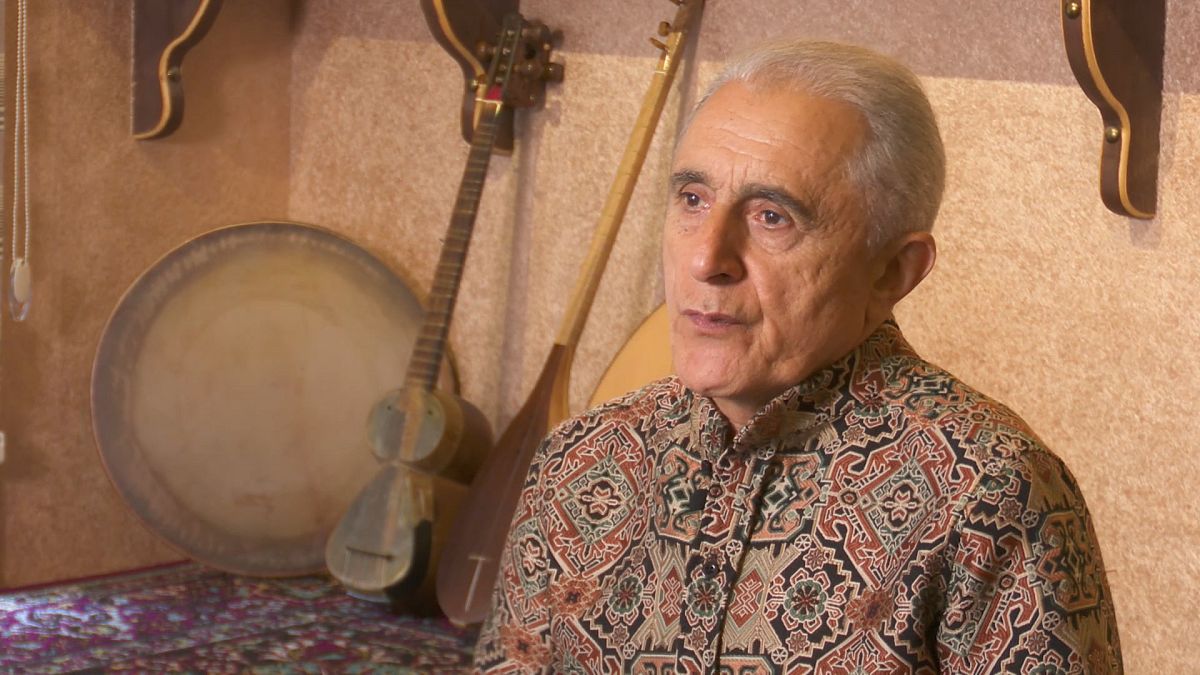

The vibrant tapestry of global news brings forward stories of artistic expression, diplomatic honors, and political challenges, all reflecting the rich and complex dynamics of our world. Let’s explore the key highlights and themes that shape these current events across the globe.
In Azerbaijan, the evocative voice of Alim Qasimov is making waves internationally. Known for his mastery of mugham, a traditional genre of Azerbaijani music, Qasimov is transforming ancient sounds into a universal language that transcends borders. His work celebrates the deep emotional resonance and timelessness of mugham, inviting listeners from all cultures to appreciate its unique storytelling power. This cultural dialogue showcases how traditional arts continue to shape and enrich global music landscapes.
Turning to Europe, we witness Angela Merkel, the former German Chancellor, reflecting on political challenges faced during her tenure. She recounts her interactions with Donald Trump, describing him as an attention seeker and discussing the emotional toll of the Greek debt crisis. Such candid insights offer a glimpse into the high-pressure world of international diplomacy and the personal resilience required to navigate it.
Meanwhile, the United Kingdom’s political scene is abuzz with discussions around Chancellor Rachel Reeves. Recently seen in tears during a parliamentary session, Reeves attributes her emotional display to personal issues, firmly asserting her commitment to her governmental duties. The situation highlights the human aspect of political leadership and the challenges faced by leaders in balancing professional responsibilities with personal life.
In the tranquil city of Aix, the Power 40 guide ranks the most influential figures of 2025, creating an invaluable resource for understanding the complex networks of power and influence in contemporary politics. Alongside, the much-anticipated Rencontres events mark their return, offering platform for discussions, debates, and networking, further solidifying Aix’s role as a focal point for political discourse.
On the international stage, Trinidad and Tobago’s decision to honor Indian Prime Minister Narendra Modi during his historic visit draws mixed reactions. While the Indo-Trinidadian Hindu community welcomes the acknowledgment, concerns persist among the country’s Muslim organization regarding Modi’s human rights record. This situation underscores the delicate balance nations must strike between celebrating diplomatic relationships and addressing contentious issues.
In El Salvador, harrowing allegations of torture emerge, with court documents detailing the inhumane treatment of Kilmar Ábrego García, a Maryland man wrongfully deported and detained in the country’s prison system. These revelations cast a spotlight on human rights implications within international deportation policies and the pressing need for transparency and accountability.
In South Korea, newly-elected President Lee Jae-myung offers a refreshing approach to leadership, markedly distinct from his impeached predecessor, Yoon Suk Yeol. By emphasizing transparency and accessibility, Lee sets a tone of openness, fostering national confidence and signaling a hopeful new chapter for the country.
On a larger geopolitical scale, the UN Special Rapporteur on the Occupied Palestinian Territories calls for the severance of trade ties with Israel, citing a concerning situation in Gaza. This evolving narrative serves as a reminder of the ongoing humanitarian challenges in global regions of conflict and the international community’s role in seeking peace and justice.
Finally, in the cultural realm, a significant tribute in Derry commemorates the hard work of women who powered the city’s shirt factories. However, the abstract nature of the sculpture has stirred mixed feelings among some former workers. This artistic tribute highlights the diverse interpretations and emotional connections that public art evokes, reinforcing the importance of these dialogues in honoring historical contributions.
As these stories unfold, they collectively illustrate the diverse ways in which art, politics, and culture intersect, reflecting the intricate mosaic of our shared human experience. By maintaining a calm and reflective lens on these events, we can better appreciate the nuanced and interconnected narratives shaping our world today.
Source: {link}
